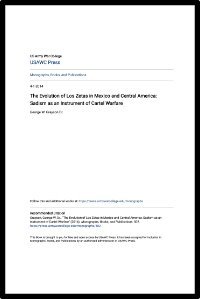By Andrés Aldana, Hernán Larralde & Maximino Aldana
Among all types of corruption, police corruption is probably the one that most directly hurts society, as those trusted with protecting the people either side with the criminals that victimize the citizens, or are themselves, criminals. However, both corruption and its effects are very difficult to measure quantitatively other than by perception surveys, but the perception that citizens have of this phenomenon may be different from reality. Using a simple agent-based model, we analyze the effect on crime rates as a result of both corruption and the perception of corruption within law-enforcement corporations. Our results show a phase transition in which crime can propagate across the population even when the majority of police officers are honest. We find that one of the parameters that strongly controls crime incidence is the probability that regular citizens become criminals. In contrast, other actions, such as arresting crime lords, or the amount of crime-associated money that is confiscated, have little impact on the long-term crime incidence. Our results suggest that in addition to combating corruption within law-enforcement institutions, to further reduce the incidence of crime, policymakers should strive to restore confidence in these institutions and the justice system.











